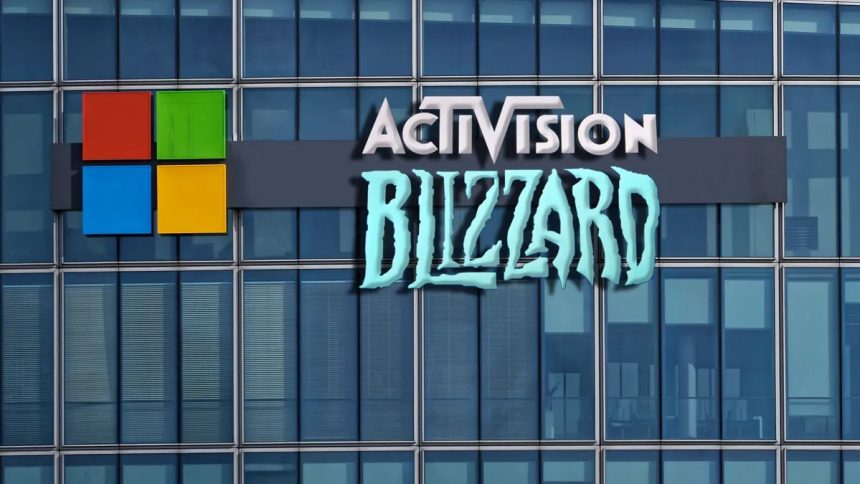Microsoft is facing challenges in its pursuit of the $69 billion acquisition of game publisher Activision Blizzard, as the US Federal Trade Commission (FTC) has taken steps to block the deal.
On Monday, the FTC filed an injunction to halt Microsoft’s purchase of Activision before the July 18 deadline. This move comes after the commission filed a lawsuit against Microsoft several months earlier, claiming that the acquisition would allow the tech giant to stifle competition in the gaming industry, particularly in relation to its Xbox gaming consoles and its growing subscription and cloud-gaming business.
Microsoft announced its plans to acquire Activision Blizzard in January 2022. If the deal goes through, it would position Microsoft as one of the top three video game publishers, trailing closely behind rival Sony. Activision Blizzard is known for its major franchises such as Call of Duty, Candy Crush, and Overwatch, which would greatly enhance Microsoft’s games catalog.
While Microsoft has won some battles related to the merger, there are still hurdles to overcome.
Approval for the deal is pending from regulators in the US. The FTC’s lawsuit in December and the recent injunction impede the approval process.
The injunction is aimed at maintaining the current situation and preventing interim harm to competition while the FTC’s administrative proceeding determines whether the proposed acquisition violates US antitrust law, according to the filing.
Microsoft’s vice chair and president, Brad Smith, tweeted on Monday that the FTC’s suit “should accelerate the decision-making process.” He expressed confidence in Microsoft’s case and stated a preference for constructive and amicable paths with governments.
A hearing regarding the lawsuit is scheduled for August 2.
The UK is another significant country that has yet to approve the deal. In April, the UK’s Competition and Markets Authority (CMA) blocked the $69 billion acquisition, citing concerns of higher prices and reduced choices for gamers. Microsoft has appealed the ruling, arguing that the CMA made errors in its calculation and assessment of market share data for cloud gaming services.
Microsoft continues to refute claims that the deal would harm competition in the video game industry and is engaged in negotiations with regulators to secure approval.
What Does the Deal Mean for Gamers?
For Xbox Game Pass subscribers, the deal between Microsoft and Activision Blizzard means that Activision Blizzard’s games will likely be incorporated into the subscription service, similar to how Bethesda games were included after Microsoft’s acquisition of that company in 2020.
However, the impact on gamers who do not own an Xbox and instead use Sony PlayStation or Nintendo Switch consoles is less certain. Critics of the deal are worried that Microsoft might make future games developed by Activision exclusive to Xbox, as they did with Bethesda games. This is particularly concerning for popular titles like Call of Duty, which is a major franchise under Activision.
While Microsoft has already secured a 10-year agreement with Nintendo to bring Call of Duty games to its consoles, Sony reportedly rejected a similar arrangement. Sony remains opposed to the deal and continues to express its concerns to regulators through official filings.
What is Cloud Gaming?
Cloud gaming refers to the technology that enables streaming video games remotely to devices such as phones, tablets, or smart TVs. Although the technology has been around for over a decade, it has gained significant traction in recent years, partly due to its integration as an added feature in Microsoft’s Xbox Game Pass and Sony’s PS Plus subscriptions.
Other companies have also developed their own cloud gaming services, such as Amazon’s Luna and GeForce Now. In February, Amazon made an agreement with Microsoft to bring more of its games to the Luna service over the next decade.








